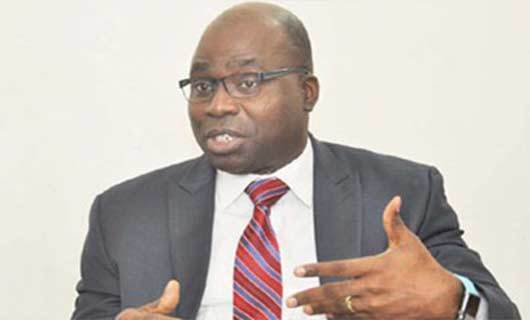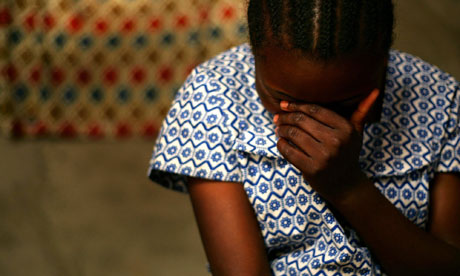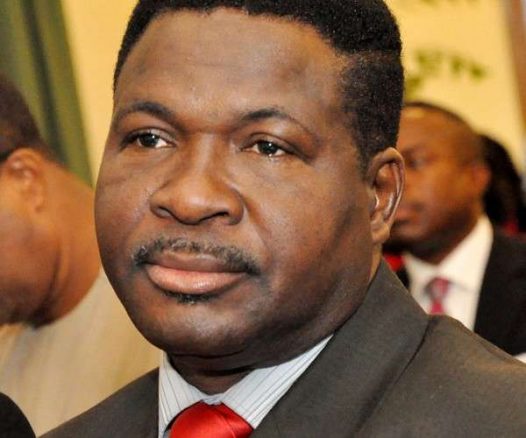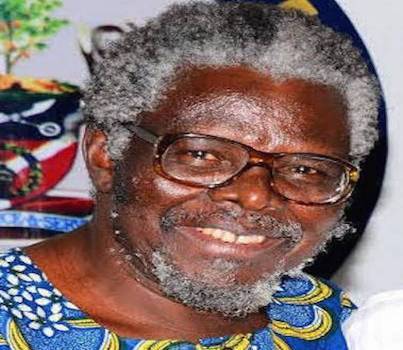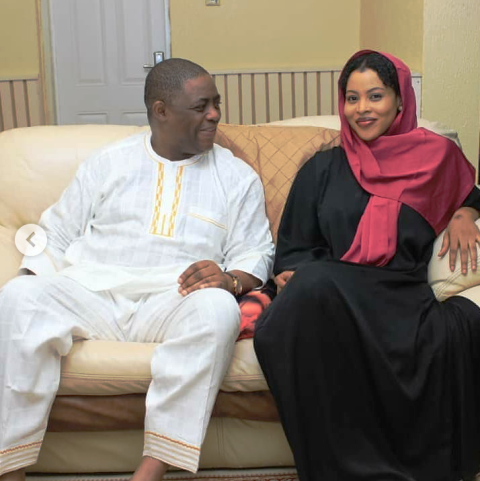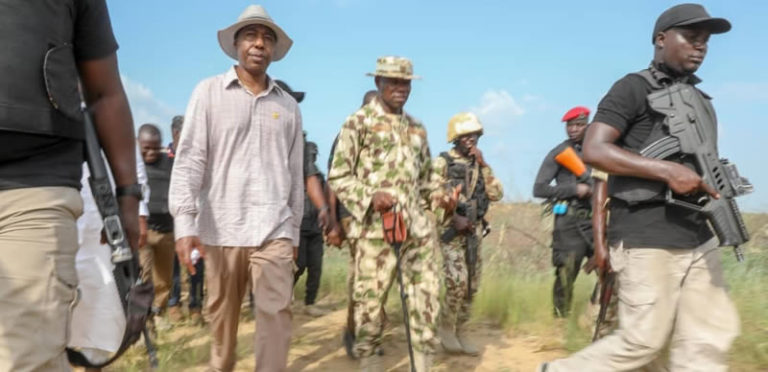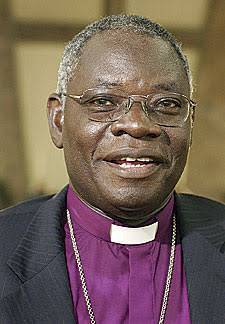In a three months-long investigation, HumAngle traced former members of the terror group to different cities across the country, where some of them who still share radical beliefs are embedded.
By. Ahmad Salkida
September 27, 2020
8 min read
He was in the senior commanding cadre among the revered elite jihadist corps in the Islamist terrorist group, Boko Haram.
As a Qa’id, the Nigeria Army equivalent of a Brigadier-General, he was high in the sect’s pecking order.
Two years ago, Musa, (not his real name) took residence in Hayin Rigasa in Kaduna among ordinary people.
Musa was joined by his family, his wife and three children.
He lived discreetly, with a keen interest in the minutest information about his neighbours and the neighbourhood.
He avoided conversations with people and only ventured out when it was necessary.
He had a medical issue.
HumAngle was informed that Musa frequently treated piles but his stubborn refusal to submit himself for professional medical attention and prescription, plus the absence of any medical records stocked whispering campaigns that matter could very well be much more serious.
Some even hinted at the possibility of HIV.
A few months ago, Musa gave up the ghost at the peak of the scourge of the coronavirus pandemic.
Without any known friends or relations that his widow could run to, she took her children and returned to Maiduguri to join her family.
Musa was among the numerous ex-Boko Haram fighters who have made some of Nigeria’s major cities their homes since 2016.
Unconfirmed figures believe their number could be well over 3000.
Musa’s family, as well as that of his wife, had no idea of their whereabouts for years. A member of the family told HumAngle: “After the death of her husband, she had nowhere else to go, so she returned home to us in Maiduguri.
That was when we knew they were no longer in the Lake Chad precinct but were living in Kaduna for over two years.”
HumAngle tracked 15 ex-fighters of Boko Haram who have deserted the battlefronts and have taken up residence in major cities in parts of northern Nigeria.
Their neighbours and colleagues at work know nothing about their violent past. Security agencies seem to have no clues about the trend either.
Our investigations show that as many as 3,000 Boko Haram ex-fighters have been living in major cities across northern Nigeria undetected between 2016 and 2020.
They work to eke out a living as daily paid labourers in Abuja, Kano, Kaduna and other major cities in northern Nigeria.
Many among them also work as taxi drivers, domestic workers in people’s homes, wheelbarrow pushers in markets and motor parks, traders, and security guards for individuals and organisations.
One of such ex-fighters that we tracked is Aliyu (not his real name) who created for himself a new life in one of the slum neighbourhoods in Kaduna.
He moved into Kaduna three years ago and started a modest tailoring business.
He soon attracted many clients to his shop.
Aliyu drew praise from his clients, impressed that he delivers their work on time showing skill and diligence. In no time, he started a relationship with one of his clients, and it resulted in a marriage that was consummated in Kaduna on September 11.
Aliyu had always contemplated a more sedentary life, now in excitement of being married to someone from Kaduna state, he reasoned that this has been finally resolved, giving him the liberty to claim the state as his state of origin, overcoming undue official scrutiny.
Keeping track of some of them, however, is a major challenge. Unlike Aliyu, who has established himself as a tailor, most of the ex-fighters live in constant fear.
And life’s creed for them, it appears, is trust no one!
This came to test, in the reporting for this article, as some of them that we spoke with mysteriously vanished into thin air when we sought a follow-up.
Their phone numbers became dead, inoperative. This was our experience with four of them.
Three others were no longer in the physical locations in which they had been met, a practice that security sources told HumAngle was standard operating practice for members of criminal gangs who suspect that their cover had been blown.
“Offenders rarely take chances even with those they seem to trust or with their family members,” a security official told HumAngle.
One of the ex-Boko Haram fighters we spoke with confided that some among them in Abuja were recently involved in theft and were apprehended by the police.
“They are still in police custody as common criminals. But the police have no idea about their recent past. No history, no data that links the suspects to a much bigger crime like terrorism.”
The ex-fighter was HumAngle’s go-between and facilitated most of the meetings with other members of the terror group.
Another ex-fighter who only wants to be identified as Sanusi told HumAngle that he was a rajal (soldier) from 2014 when he was barely 15 years old.
“I fought and nearly became a Naqib,” he said, referencing the equivalent of a sergeant in a regular enforcement institution, before he fell out with his commanders.
He was thrown into detention for months. “The prison is not different from the ones in the land of Kufr (referring to secular societies).
We were crammed in the same cells and used the toilets as others watched, revealing our private parts.
I was glad when the opportunity to escape came, and I fled,” Sanusi recounted.
He escaped in the confusion and desperation that followed a particular military bombardment of their camp.
After his escape, Sanusi lived in four different towns working as a daily labourer.
Now 21 years old, he sees himself as a promising bricklayer and has vowed never to go back to violence.
“I don’t need to be deradicalised. My deradicalisation happened when I was imprisoned and treated like an animal by my brothers,” Sanusi said.
He did not say precisely what put him at odds with his commanders that led to his imprisonment.
He told HumAngle that an ex-Boko Haram fighter who deserted before him accommodated him in Gombe, the Gombe State capital, and introduced him to daily construction labour.
They had to flee when one of them who was addicted to phone calls attracted security surveillance in their direction.
Four of them ran to Kudu, referring to the southern parts of Nigeria, but Sanusi moved to a modest neighbourhood in Abuja.
Two other ex-fighters that HumAngle tracked currently work in the Apo mechanic village, an auto repair and spare parts market in Abuja.
According to them, it was easy for them to blend into daily city life because they received training in the Boko Haram camps as panel beaters.
They told HumAngle that while in the camp, they fabricated weapons and other metalwork for use in the insurgency.
“I was among the few lucky ones. I was not only taught how to handle weapons, but I learnt a skill that I am using to feed myself and my family today.”
Some of them believe it was safer to live and work in local government areas than in cities.
“The chances of someone who may know you from Maiduguri or who knows your affiliations are higher in the cities than if you are in smaller towns or villages,” said an ex-fighter.
All that is required is one contact who will give you a place to stay, and if you are not lazy and you engage in any kind of work, it is easy to reintegrate and be accepted in your new community.
This scenario fitted with the experience of Mustapha Modu, an ex-Boko Haram fighter who moved to Kano.
“I started washing caps two years ago when I arrived in Kano. I grew up in a family in Bama, Borno state that makes caps for a living.
I started fixing loose threads on the caps brought to me to wash, and when people began to see that their caps are not only washed but fixed, I became the favourite of many,” said Modu.
Among those that patronise Modu are businessmen and sometimes security officials who could jump at the opportunity to arrest him if they knew his true identity.
Several others like Modu have sold items on the streets to people who may think they have never met a Boko Haram fighter in their lifetime.
The Boko Haram ex-fighters, according to our findings, are careful to avoid seeking refuge in Maiduguri, the Borno State capital. Mohammed Kyari, a community worker in Maiduguri who also works as a fixer for many visiting journalists, gave an insight.
According to him, people are required in Maiduguri to report to the ward heads even when they have visitors and those seeking to rent houses are investigated by the ward heads and members of the Civilian Joint Task Force before moving in.
No ex-Boko Haram fighter wants to expose himself to such risk.
“The checks have made Maiduguri and Damaturu unattractive for Boko Haram ex-fighters.
They prefer the ensuing anonymity of cities like Kano, Kaduna, Yola and Abuja,” reasoned Kyari.
Insiders who are conversant with activities in the Boko Haram camps told HumAngle that fighters are steadily breaking ranks and moving into cities.
They further reported that several of the fighters who were deserting the camps were wary of the Federal Government’s Safe Corridor programme designed as a rehabilitating window for terrorists.
HumAngle was further informed that the ex-fighters would usually pick their ways quietly to cities such as Abuja, Kano, Kaduna, Jos or as is becoming more evident, move to Lagos or some other towns in southwest Nigeria.
Each of the ex-fighters we spoke with knew dozens more who were living in one city or another. Several of their members are also living in countries outside Nigeria.
These ex-fighters estimate that thousands of them have been living in one town or another between 2016 and now.
HumAngle was able to narrow the figure down to over 3,000 by closely monitoring and documenting the desertion of at least six Qa’ids and over 10 Munzirs, mid-level commanders alongside their respective fighters, often running into several hundred from 2016 to date.
Outside this estimate, a separate set of about 1,000 of the ex-fighters is believed to have fled to other countries within the Sahel region.
There is almost a consensus amongst the 15 ex-fighters that more than 3000 of their members fled the front lines to different parts of the country, for several reasons, in the past four years alone.
“This number is growing by the day,” said Adamu Gwange, a vigilante and veteran of the Boko Haram war, supporting the Nigerian military to prosecute the war.
Our investigation also found out that some families whose members had joined the terror group have succeeded in convincing them to escape and after that support them to settle in some locations far away from where they are known.
Multiple sources told HumAngle that Kano metropolis is host to about 50 per cent of ex-Boko Haram fighters living in cities across Nigeria.
Other choice locations for them include Kaduna, Suleja in Niger state where several hundreds of the ex-fighters reside, Dutse and Hadeija in Jigawa State, some satellite neighbourhoods in Abuja, Lagos and Ibadan in Oyo State count among their preferred cities.
Our investigation further found out that several of the over 3,000 ex-fighters who are living in different cities across Nigeria stand better chances of returning to the sect than those going through the government’s Safe Corridor programme.
Most of the ex-Boko Haram fighters withhold the view that the government programme is full of uncertainties.
Sanusi told HumAngle that one stood a chance of returning to the sect if he did not go through the deradicalisation window.
“It is not as easy as people think for people to return to the war after going through the programme.
I was imprisoned with some of the returnees from the government’s deradicalisation programme. If you are not detained, you will always be under watch.
Some have been killed on account of their involvement,” said Sanusi.
The government’s Operation Safe Corridor (OPSC) has released 852 ex-fighters since its inception in June 2016.
There are other 100 ex-Boko Haram fighters under different programmes similar to the OPSC.
The total number of ex-fighters freed under the Disarmament, Demobilization and Reintegration (DDR) programmes in Lake Chad, according to official records, is less than 1000.
In effect, HumAngle investigations reveal that the official programme graduated what constitutes less than 35 per cent of the total ex-fighters that have deserted the group.
Speaking to this paper, Kabir Adamu, a security consultant and Managing Director of Beacon Consulting, emphasised the need to deconstruct the membership structure of the typical terrorist organisation. This structure does not only include commanders and fighters but also makes room for informants, sympathisers, and collaborators. The latter group of members often make up sleeper cells who support the formalised group without necessarily embedding themselves and are located in various places outside the hotspots of insurgency.
“Sometimes, it will just take the commanders to release a statement online, and then the sleeper cells will be activated, and sometimes they are waiting to be weaponised,” he explained.
Former active members, on the other hand, the security expert continued, may either join existing sleeper cells, become itinerant while maintaining contact with the leading group, or join forces with armed bandits in the region.
He stressed that both deserters and collaborators living in the larger society constitute a viable threat and may attack at any point in time.
Several of the ex-Boko Haram fighters who spoke with HumAngle maintain that they still share the ideology that forbids any association with civil authority and western education.
They contend that the only reason they left the battleground was the incessant leadership feud.
They were not fleeing the camps because they had disavowed violent criminalities. For instance, one of them told HumAngle: “I was driving a commercial taxi and felt like plunging into a ditch with all the passengers because the commuters were saying derogatory things about Islam and Muslims.
“I nearly shoved the car in the ditch for all of us to die, but I remembered my wife and kids at home waiting for me and having nowhere else to go in my absence.”
Mr Adamu advised the government to prioritise intelligence gathering on terrorist membership as a way to lessen security threats from ex-jihadi combatants significantly.
“How come we do not have a comprehensive database of members of Boko Haram?” he asked.
Having such information through the collaboration of all security agencies will enable the government to monitor the insurgents’ movement effectively.
“We had the chance at the beginning when the group was organised before Mohammed Yusuf was killed, but we never had that database.
And till date, ten years into the campaign, we still do not have it.”
At the height of the COVID-19 pandemic, the community of these ex-fighters were locked in a debate as to whether it was ideologically appropriate for them to take the palliatives from the government or not.
The lockdown and social distancing measures had affected most of them who relied on daily wages to survive.
One of them, Tijani Abba, shared his particular experience and dilemma with HumAngle: “It was challenging for me, I left the forest in February and escaped to Cameroon, ended up in Cross River before settling down in Jos with my cousins.”
The long, risky and expensive journey for this deserter lasted for two months, and when he was about to settle down, the COVID-19 lockdown unleashed hunger and starvation on him.
“I have to beg for food for weeks before I finally found my relatives,” he told HumAngle.
This investigative report is a partnership between HumAngle Media and the Premium Times Centre for Investigative Journalism under the media and terrorism programme.

